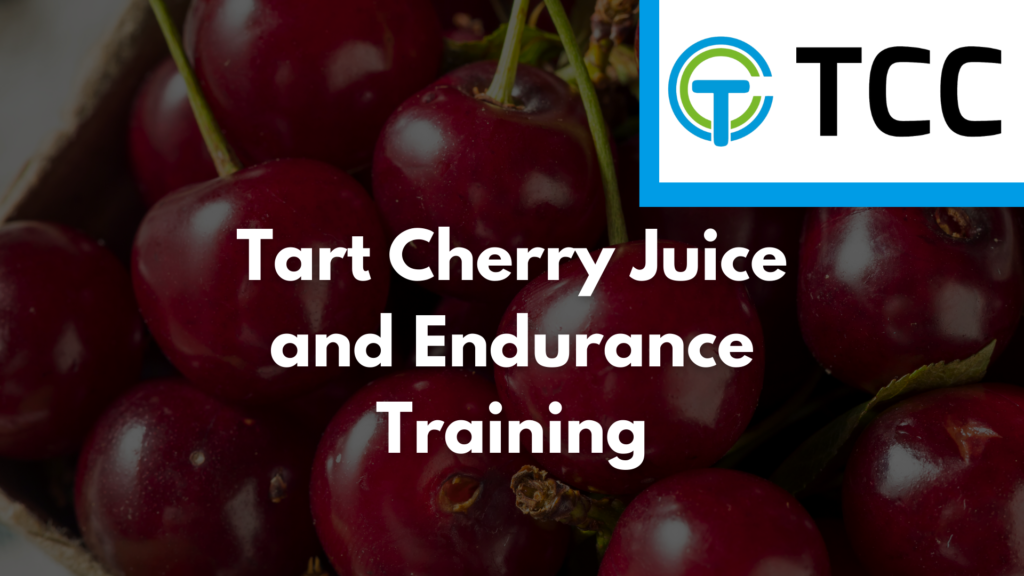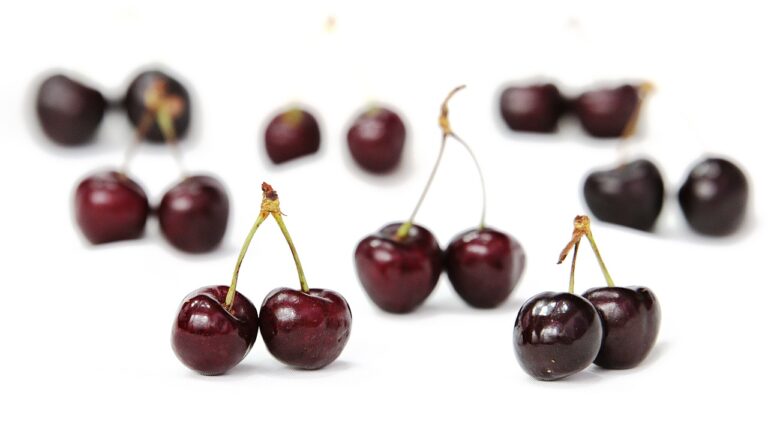
Introduction
As endurance athletes, we always look for ways to enhance our performance. And new fads, or even age-old remedies, often catch our attention, along with good marketing for companies promoting their products. One such product that has been gaining attention recently is tart cherry juice. Is it useful, or is it yet another gimmick?
Those of you that know me will know that both my undergrad and master’s research focused on sports nutritional supplements and specifically the use of Montmorency Tart Cherry juice. So, I thought it was about time to explain what it is, what it is supposed to do and how it may benefit endurance athletes like us.
What is Tart Cherry Juice?
Tart cherry juice is a drink made from the fruit of tart cherries, specifically the Montmorency variety, as it is reported to contain higher concentrations of anthocyanin and phytochemicals that bring about the drink’s reported benefits (Sokół-Łętowska et al., 2018). Anthocyanins are a type of flavonoid that give fruits and veggies their vivid colour. They have been linked to numerous health benefits, such as reducing inflammation, improving heart health and aiding in disease prevention (Hussain et al., 2016). More recently, they have been studied for their potential benefits for endurance athletes, who put a lot of strain on their bodies while training and competing.
The Science Behind Tart Cherry Juice
Studies on tart cherry juice have suggested that consuming the drink can reduce recovery time and soreness after resistance or endurance training by athletes (Bell et al., 2015; Brown et al., 2019). Additionally, tart cherry juice contains anti-inflammatory compounds that can aid in reducing muscle damage caused by intense exercise. These anti-inflammatory compounds are believed to help decrease exercise-induced inflammation, which can lead to improved recovery and less muscle soreness. These benefits are thought to be due to the high levels of antioxidants and phytochemicals found in tart cherry juice, which help to reduce oxidative stress and inflammation in the body. The mechanism by which this happens is not yet fully understood but is thought to be related to the inhibition of certain enzymes involved in inflammation pathways, as well as the modulation of gene expression involved in antioxidant pathways, and tart cherries’ ability to maintain Redox balance which is crucial for maintaining optimal cellular function.
Potential Benefits for Endurance Athletes
As an endurance athlete, you put your body through large amounts of stress and strain during training and competition. This can lead to muscle soreness, inflammation, and reduced recovery time. Tart cherry juice has been shown to significantly reduce muscle soreness and inflammation while promoting faster recovery times. In addition to these benefits, tart cherry juice has also been linked to improved sleep quality and duration. This is important for endurance athletes who require adequate sleep to support their training and recovery needs. Furthermore, studies have shown that tart cherry juice can help improve some markers of cardiovascular health in athletes.
Tart cherry juice is a rich source of compounds that offer numerous potential health benefits. These include enhancing blood flow, lowering blood pressure and reducing oxidative stress. Furthermore, a recent meta-analysis by Gao and Chilibeck has highlighted how tart cherry juice supplementation can also significantly positively affect endurance athletes’ athletic performance (Gao and Chilibeck, 2020). This includes reducing muscle damage and inflammation and improving exercise-induced adaptation and aerobic power. Additionally, their findings suggest that tart cherry juice could potentially be used in preventing or treating exercise-induced muscle pain – making it an excellent choice for endurance athletes looking to maintain peak physical condition. In addition to this, several studies have found that tart cherry juice supplementation can improve performance; one study completed on half marathon runners found that by consuming tart cherry juice twice daily in the week leading up to a race, athletes were able to improve their running performance (Levers et al., 2016).
Additionally, another study on time to exhaustion in cyclists found that consuming tart cherry juice increased the time they could cycle before exhaustion (Morgan, Barton and Bowtell, 2019). It is important to note that though these studies showed improvements in both finish times and time to exhaustion, they had a relatively small sample size. Further research is required to fully understand the effect of tart cherry juice on athletic performance.
Ways to Incorporate Cherry Juice into Your Training and Recovery
Tart cherry juice is an easy and potentially beneficial addition to any endurance athlete’s training and recovery routine. So, how should you use it?
One easy way to incorporate tart cherry juice into your training is to drink it before and after workouts. Research suggests that drinking tart cherry juice before exercise can help reduce muscle damage and inflammation while drinking it after can aid in recovery by reducing soreness and improving sleep quality. Currently, there is no clear evidence on optimal dosing. Still, most studies suggest consuming concentrated tart cherry juice equivalent to 90-120 cherries per day, generally around 30-60mL of tart cherry juice concentrate or 240-480mL of the ready-to-drink version. It’s important to note that tart cherry juice is relatively high in sugar, so it may not be the best choice for athletes with diabetes or those on a low-sugar diet. Another option is to add tart cherry juice concentrate to your post-workout protein shake or smoothie.
Potential Drawbacks and Considerations
While tart cherry juice can be a valuable tool for endurance athletes, there are some potential drawbacks and considerations to remember. Firstly, tart cherry juice is relatively high in sugar, which may not be ideal for all athletes. Athletes with diabetes or those on a low-sugar diet may need to be cautious when incorporating tart cherry juice into their routine. Additionally, consuming too much tart cherry juice can have a laxative effect due to its sorbitol content. Therefore, athletes should be mindful of their consumption levels and start with a smaller amount to gauge their tolerance.
Additionally, the mechanism by which it is thought to reduce inflammation and post-exercise soreness may blunt the training response, meaning that athletes may not see as much improvement in their performance over time if supplementing with tart cherry juice. It is important to note that this may be useful if, for example, you need to recover quickly for a subsequent competition or if you are in the taper phase of your training plan. Finally, although there have been some real advancements in the potential health benefits of tart cherry juice, more research is needed to fully understand its effectiveness and optimal dosing for different populations.
Conclusion and Final Thoughts
In conclusion, tart cherry juice has shown promising results in reducing muscle damage and inflammation, improving sleep quality, and aiding recovery for endurance athletes. However, athletes should be mindful of their sugar intake and potential laxative effects when incorporating tart cherry juice into their routine. Remember that tart cherry juice should not be considered a magic solution. Athletes must continue fuelling their bodies with whole foods, including nutrient-dense fruits and vegetables, while staying adequately hydrated. If you are an endurance athlete seeking a natural and holistic way to speed your recovery, tart cherry juice may be worth exploring.
References
Bell, P.G. et al. (2015) ‘Recovery facilitation with montmorency cherries following high-intensity, metabolically challenging exercise’, Applied Physiology, Nutrition and Metabolism, 40(4), pp. 414–423. Available at: https://doi.org/10.1139/apnm-2014-0244.
Brown, M.A. et al. (2019) ‘Montmorency tart cherry (Prunus cerasus L.) supplementation accelerates recovery from exercise-induced muscle damage in females’, European Journal of Sport Science, 19(1), pp. 95–102. Available at: https://doi.org/10.1080/17461391.2018.1502360.
Gao, R. and Chilibeck, P.D. (2020) ‘Effect of Tart Cherry Concentrate on Endurance Exercise Performance: A Meta-analysis’, Journal of the American College of Nutrition, pp. 1–8. Available at: https://doi.org/10.1080/07315724.2020.1713246.
Hussain, T. et al. (2016) ‘Oxidative Stress and Inflammation: What Polyphenols Can Do for Us?’, Oxidative Medicine and Cellular Longevity, 2016, p. 7432797. Available at: https://doi.org/10.1155/2016/7432797.
Levers, K. et al. (2016) ‘Effects of powdered Montmorency tart cherry supplementation on acute endurance exercise performance in aerobically trained individuals’, Journal of the International Society of Sports Nutrition, 13(1). Available at: https://doi.org/10.1186/s12970-016-0133-z.
Morgan, P.T., Barton, M.J. and Bowtell, J.L. (2019) ‘Montmorency cherry supplementation improves 15-km cycling time-trial performance’, European Journal of Applied Physiology, 119(3), pp. 675–684. Available at: https://doi.org/10.1007/s00421-018-04058-6.
Sokół-Łętowska, A. et al. (2018) ‘Phenolic Composition Stability and Antioxidant Activity of Sour Cherry Liqueurs’, Molecules : A Journal of Synthetic Chemistry and Natural Product Chemistry, 23(9), p. 2156. Available at: https://doi.org/10.3390/molecules23092156.




